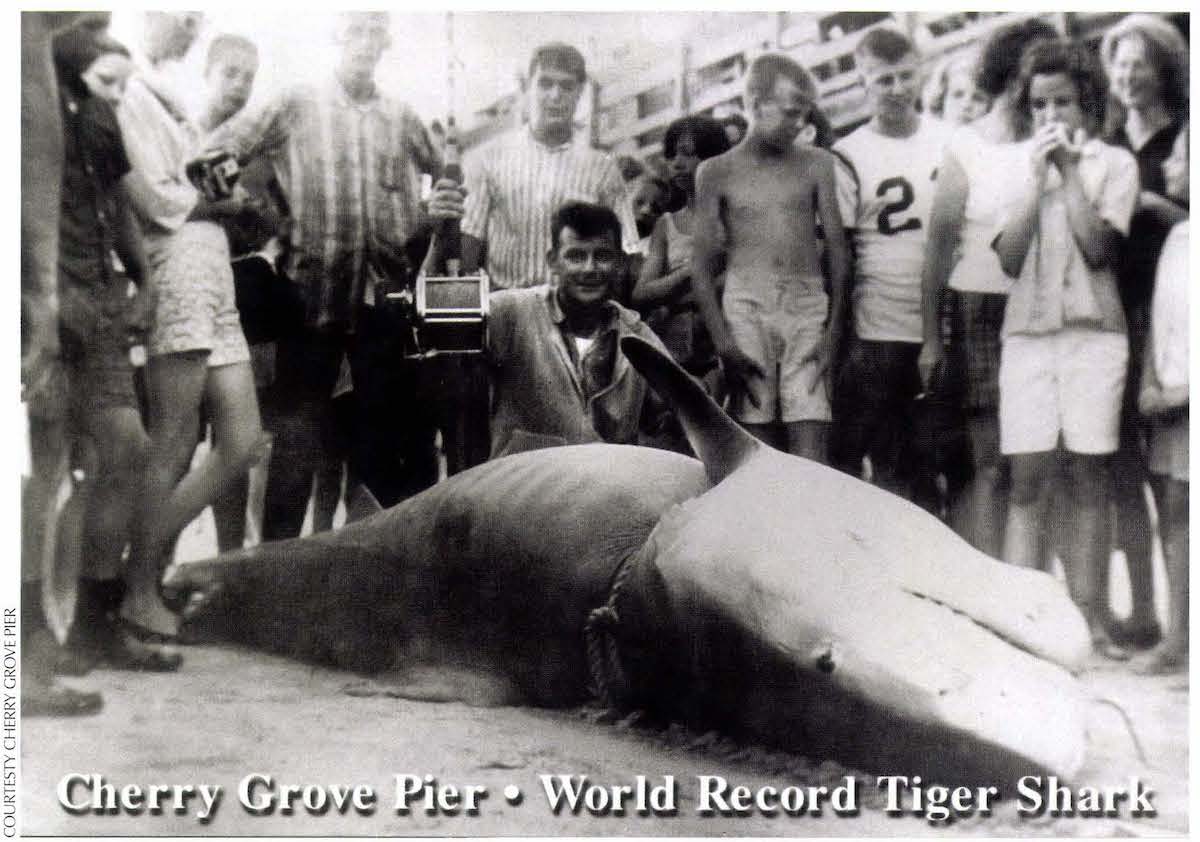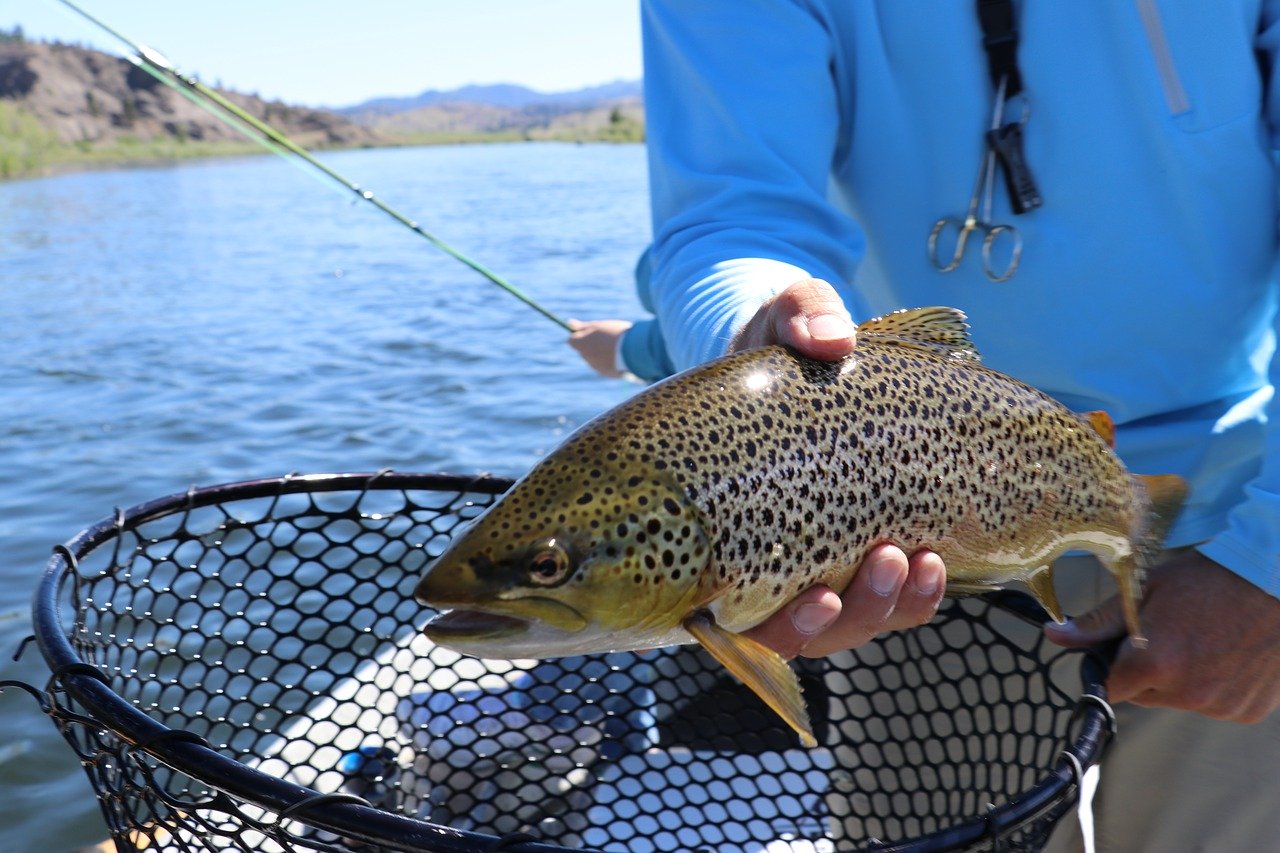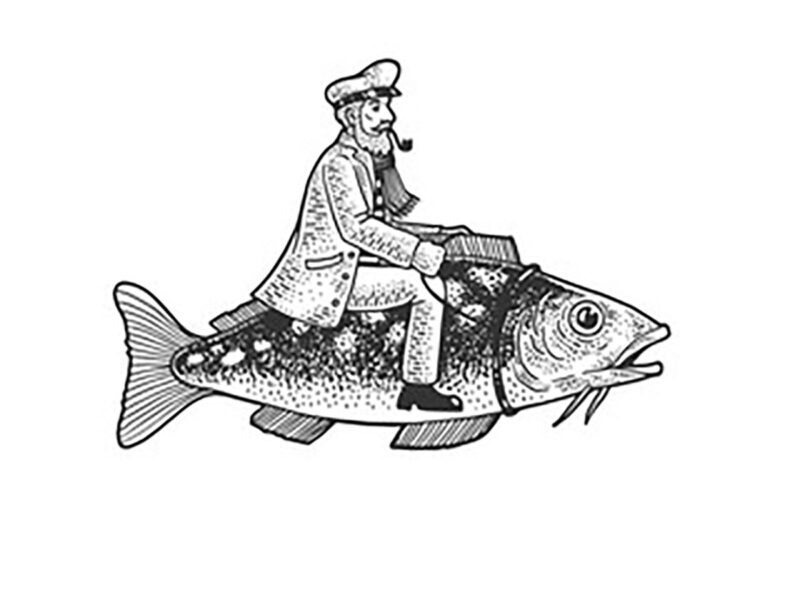 It’s that time of year again, late winter, a time when grown men and even some normally sensible ladies find themselves irresistibly drawn to dank cellars and darkened closet corners. In those secret recesses, they gaze longingly at last summer’s dusty playthings. They struggle with the urge to run their fingers over the brass chrome, plastic and graphite that are their links to brighter times. The previous year’s wounds have healed, the sunburn has cooled and the poisonous rash of ivy and sumac has given way to another itch. The adage that hope springs eternal has never been so true as when applied to these brave souls. Yes, friends, it will soon be time to go fishing. The veterans among you, and you know who you are, have been through this too many times. I cannot help you. Some addictions are not meant to be cured. This treatise is directed instead toward the neophytes, the rookies, the first timers who have looked upon the contentment in a friend’s mosquito-bitten faced now wish to experience that joy firsthand. It is for the poor unfortunates who have never ventured forth to match wits with a Mrs. Filbert’s fish stick in its natural habitat that I will attempt to explain the intricacies of this pastime that we call Fishing.
It’s that time of year again, late winter, a time when grown men and even some normally sensible ladies find themselves irresistibly drawn to dank cellars and darkened closet corners. In those secret recesses, they gaze longingly at last summer’s dusty playthings. They struggle with the urge to run their fingers over the brass chrome, plastic and graphite that are their links to brighter times. The previous year’s wounds have healed, the sunburn has cooled and the poisonous rash of ivy and sumac has given way to another itch. The adage that hope springs eternal has never been so true as when applied to these brave souls. Yes, friends, it will soon be time to go fishing. The veterans among you, and you know who you are, have been through this too many times. I cannot help you. Some addictions are not meant to be cured. This treatise is directed instead toward the neophytes, the rookies, the first timers who have looked upon the contentment in a friend’s mosquito-bitten faced now wish to experience that joy firsthand. It is for the poor unfortunates who have never ventured forth to match wits with a Mrs. Filbert’s fish stick in its natural habitat that I will attempt to explain the intricacies of this pastime that we call Fishing.
I have noticed over the years that people who take up fishing relatively late in life, say at any time past age eight, begin with a misconception of what the sport is all about. Somehow, they have been led to believe that the purpose of going fishing is to relax, to enjoy the serenity of the outdoors, or perhaps to even provide for their families an occasional healthy meal of fresh fish. This is, of course, a lie and the person responsible for instilling such a delusion in an unsuspecting pilgrim is very likely a fisherman himself and therefore is not to be trusted.
The true driving force behind recreational fishing is a spirit of patriotism. We fishermen understand that a strong mail-order catalogue industry, particularly a strong fishing equipment catalogue industry, is vital to the continued well-being of this great nation. We have sacrificed many evenings of conversation with our spouses and pleasant weekends of performing satisfying home improvement projects in order to investigate these catalogues, searching always for the one piece of paraphernalia we do not yet have so that we can purchase it and contribute even more to the economic development of our country.
 I know that many of you reading this are asking yourselves even now: “How can I get on a mailing list for fishing equipment catalogues and help promote the continued economic prosperity of my country?” I am happy to tell you that it’s not as hard as you might think. Simply go to your friendly local discount store and spend two minutes standing in front of the fishing tackle display. Heat-seeking sensors hidden in spools of monofilament will register your DNA as well as your address and transmit the data to Catalogue Central. When you return home, you will find thirteen fishing tackle catalogues in your mailbox. If you order so much as a one-ounce package of lead sinkers from one of those distributors, a red light will begin blinking on the desk of the Postmaster General and the postal service will soon be building a branch office in your neighborhood.
I know that many of you reading this are asking yourselves even now: “How can I get on a mailing list for fishing equipment catalogues and help promote the continued economic prosperity of my country?” I am happy to tell you that it’s not as hard as you might think. Simply go to your friendly local discount store and spend two minutes standing in front of the fishing tackle display. Heat-seeking sensors hidden in spools of monofilament will register your DNA as well as your address and transmit the data to Catalogue Central. When you return home, you will find thirteen fishing tackle catalogues in your mailbox. If you order so much as a one-ounce package of lead sinkers from one of those distributors, a red light will begin blinking on the desk of the Postmaster General and the postal service will soon be building a branch office in your neighborhood.
The arrival of the catalogues and the new construction down the street are only the beginning of an exciting adventure. Some of you will decide to actually go fishing and the catalogues are an excellent resource for the beginner. By studying them from the safety of your own home, you will postpone minor injuries due to drowning or sunstroke while you learn the differences between shad-rap, lip-rap and gangsta-rap. The few months it takes to look through a typical day’s supply of fishing catalogues is time well spent.
And speaking of well spent. A quick glance at your new literature will soon disabuse you of any notion you might have had about fishing being a simple hobby that can be performed with a cane pole while wearing a straw hat. The Norman Rockwell stuff is out, dude. Fishing today requires serious equipment and a serious expenditure of venture capital. To illustrate, I recently opened one of my new circulars to a random page. I was glad to see it offered none of the big-ticket items such as boats and rods, but only the barest of essentials like pliers, lure retrievers, metal detectors and a digital watch which shows the moon phases, the Solunar tables, the tide charts and an hourly stock market report in addition to being a stopwatch accurate to 1/100 of a second and, if the ad is to be believed, also performs regular timekeeping! Fortunately, I already own some pliers and stuff because a few minutes with my calculator revealed that to purchase one of each of the items offered on that page would require an expenditure of $649.21. Since the catalogue contained 243 pages, I figure a beginner could get everything he or she needs for only $168,693.03. (Tax and shipping extra. All major cards accepted.)
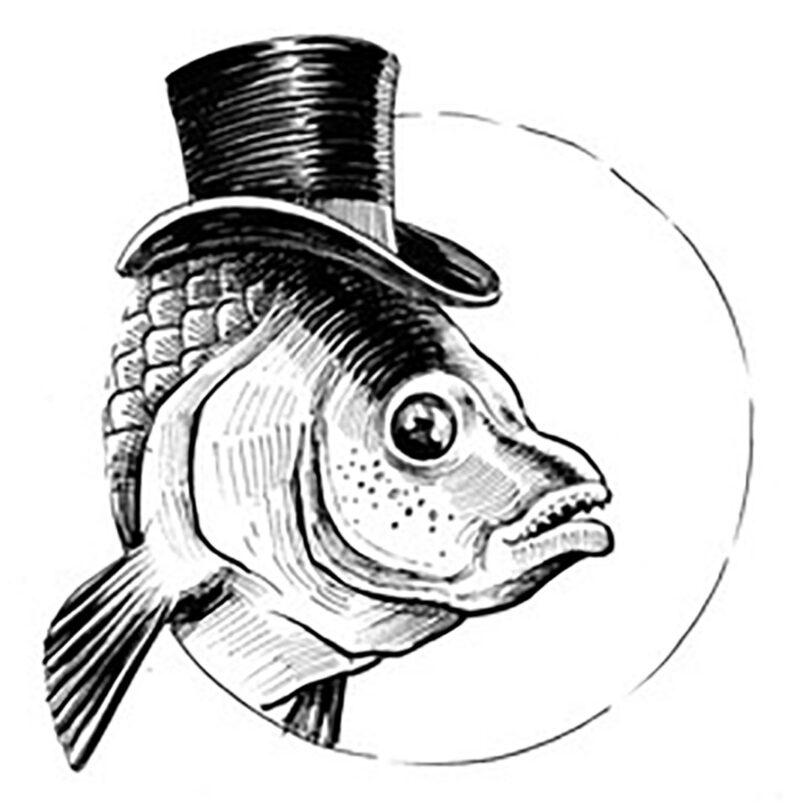 Of course, there is more to fishing than just writing checks. If making and spending money were all it took to fulfill the soul in this modern world, fishermen like myself might get regular jobs, spend money on home maintenance and allow their children to wear shoes year-round. Those of us who have fished for years know there is more to life than this. We know that fishing is a means of searching for knowledge and inner peace as well as good reason to be lazy and drink beer. Those of you just beginning The Quest for the perfect excuse to miss work can look forward to the many joys of learning. And speaking of learning: A good place to start is with a brief study of history and terminology. The history is easy. Mankind has always fished. Evolution teaches us that life emerged from the sea and country music teaches us that some of the worst songs, and yet biggest hits, on the radio are about wanting to go home. The urge to sit beside the water and dream of lost youth is, therefore, completely natural. If your boss or your spouse happens to express a different opinion, it only proves their ignorance of science. You are free to feel smug as you ignore them.
Of course, there is more to fishing than just writing checks. If making and spending money were all it took to fulfill the soul in this modern world, fishermen like myself might get regular jobs, spend money on home maintenance and allow their children to wear shoes year-round. Those of us who have fished for years know there is more to life than this. We know that fishing is a means of searching for knowledge and inner peace as well as good reason to be lazy and drink beer. Those of you just beginning The Quest for the perfect excuse to miss work can look forward to the many joys of learning. And speaking of learning: A good place to start is with a brief study of history and terminology. The history is easy. Mankind has always fished. Evolution teaches us that life emerged from the sea and country music teaches us that some of the worst songs, and yet biggest hits, on the radio are about wanting to go home. The urge to sit beside the water and dream of lost youth is, therefore, completely natural. If your boss or your spouse happens to express a different opinion, it only proves their ignorance of science. You are free to feel smug as you ignore them.
The first written record of fishing occurs in the Bible where it mentions that several of the Disciples were fishermen. This is also the only documented evidence of one of the rarest creatures ever thought to have roamed our planet: a fisherman who did not lie. Among theologians, the debate still rages today over whether these men were honest because of their religious convictions or because they fished before the invention of the open-face spinning reel. Having once heard a Baptist deacon who was also a noted Gospel Singer describe catching and releasing a 22-inch native brook trout from a highway culvert in Asheville, North Carolina, I believe the Apostles’ inability to tell good fish stories probably stemmed from the small number of equipment catalogues available on stone tablet.
Although fishing history is simple and easy to understand, it is not always so with terminology. People who are considering taking it up, either because they listened to and admired the colorful language of their fishing friends or because they recently picked up a glossy fishing magazine at their local barbershop, often say to me: “I’m considering taking up fishing. I’ve listened to and admired the colorful language of my fishing friends; I even picked up a glossy fishing magazine while at my local barbershop and I was just wondering: How is it possible for an outdoor writer to write a phrase like finny denizens of the deep without suffering a hernia from laughing at himself?” The question is a good one, but the answer is a closely held trade secret. I can only hint that it involves an intensive 12-step program that includes deadlines, adult beverages and alimony payment.
Actually, nobody has ever asked me a question like that. I made up that exchange as casually as I might flip a size 28 dual invisible on an 11-foot triple X half-tapered limpet 70 yards across the raging southeast fork of the revered Rio Neon to a bottlenose sturgeon cat feeding in three feet of gin. I mean gin clear water. See how easy fishing language is? No?
 OK. We’ll go back to basics then. Let’s take the word “wallhanger” as used in the following sentence: “I’d sure like to catch me a wallhanger someday.” What this means is that the fisherman who made the statement foolishly consented to let his wife hire someone to remodel their kitchen. During the process, the husband graciously offered to go on a two-week fishing trip to Ontario so he would not get in the way. In the course of the renovation, the wife became involved with one of the men installing the new wallboard and left town with him. The fisherman now has an ugly kitchen and owes the construction company a lot of money. This means it will be at least two years before he can buy a bigger boat, and he is threatening violence against the construction worker but in such a way that if it goes to court, he can claim he was talking about landing a large fish and displaying a plastic replica of it on the wall of his home.
OK. We’ll go back to basics then. Let’s take the word “wallhanger” as used in the following sentence: “I’d sure like to catch me a wallhanger someday.” What this means is that the fisherman who made the statement foolishly consented to let his wife hire someone to remodel their kitchen. During the process, the husband graciously offered to go on a two-week fishing trip to Ontario so he would not get in the way. In the course of the renovation, the wife became involved with one of the men installing the new wallboard and left town with him. The fisherman now has an ugly kitchen and owes the construction company a lot of money. This means it will be at least two years before he can buy a bigger boat, and he is threatening violence against the construction worker but in such a way that if it goes to court, he can claim he was talking about landing a large fish and displaying a plastic replica of it on the wall of his home.
Another commonly confused word is “bucketmouth.” Linguists agree that bucketmouth originated in Alabama or Mississippi and was used by fishermen long before Monica Lewinsky became a household name. As a fishing term, theword can be used in the following manner: “I had ole bucketmouth almost in the net when he broke loose and went tearing off through them stumps at the upper end of Abney Hole.”
Beginning fishermen might understandably assume that the speaker is referring to an eight-pound largemouth bass that narrowly escaped capture. Veterans will know, however, that eight -pound bass exist only on television fishing shows and in the lies told in bars and barbershops. The guy who used the word “bucketmouth” was most likely describing his brother-in-law who, having already eaten all six of the livermush sandwiches they had in their boat, was reaching for the last beer in the cooler when the fisherman snapped and attacked him with a landing net. The brother-in-law then fled across the swamp, beer in hand, leaping from stump to stump in a desperate attempt to reach a nearby convenience store before it closed.
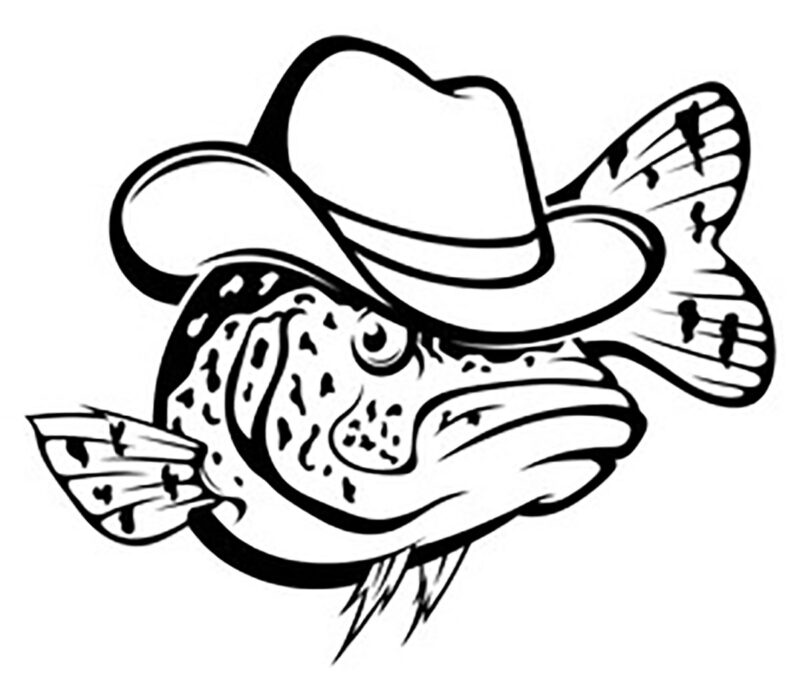 Increased understanding of language and a greatly expanded vocabulary are often-overlooked benefits of fishing. I have been fishing since I was five and knew most of the major groups of cuss words by the time I was seven. Now, in my advanced age, I find myself increasingly fascinated with the study of language and have done extensive research in this area. Most of my work takes place while I am sitting in a leaky boat, drinking beer and casting popping bugs to bluegills. In this environment, free from bothersome facts and unrestricted by any ties to the truth, I can create a completely fallacious history of words like “wallhanger,” “bucketmouth” and “buzz-bait.”
Increased understanding of language and a greatly expanded vocabulary are often-overlooked benefits of fishing. I have been fishing since I was five and knew most of the major groups of cuss words by the time I was seven. Now, in my advanced age, I find myself increasingly fascinated with the study of language and have done extensive research in this area. Most of my work takes place while I am sitting in a leaky boat, drinking beer and casting popping bugs to bluegills. In this environment, free from bothersome facts and unrestricted by any ties to the truth, I can create a completely fallacious history of words like “wallhanger,” “bucketmouth” and “buzz-bait.”
The first buzz-bait was created by the same two men who served as examples in the previous illustration of the ten bucket mouth. Randall and Earl were having very little luck when Earl accidentally spilled his drink into the minnow bucket. Earl’s drink, cleverly disguised as a 24-ounce “Big Gulp” Pepsi, actually contained equal measures of Pepsi and 120 proof “Old Forstfire.” The minnows began to swim erratically and using the drunken baitfish produced a limit of bass, including several eight pounders. Unfortunately for Randall and Earl, their cries of joy attracted a game warden who not only made them release the fish, he ticketed Earl for using Pepsi in a Coca-Cola Only lake.
Earl and Randall were pretty mad when none of their friends would believe their story, so they decided to invent an artificial drunken minnow that would make them both rich and famous. For three years the men invested everything they had trying to produce a floating/diving plug with two sets of treble hooks and a lampshade on its head. Half-mad with disillusionment, Randall gave up and took a job as a disgruntled postal worker. Earl continued on and finally managed to sell a prototype he built using his third ex-wife’s jewelry and two tiny copper propellers borrowed from a model airplane he found in Randall’s garage.
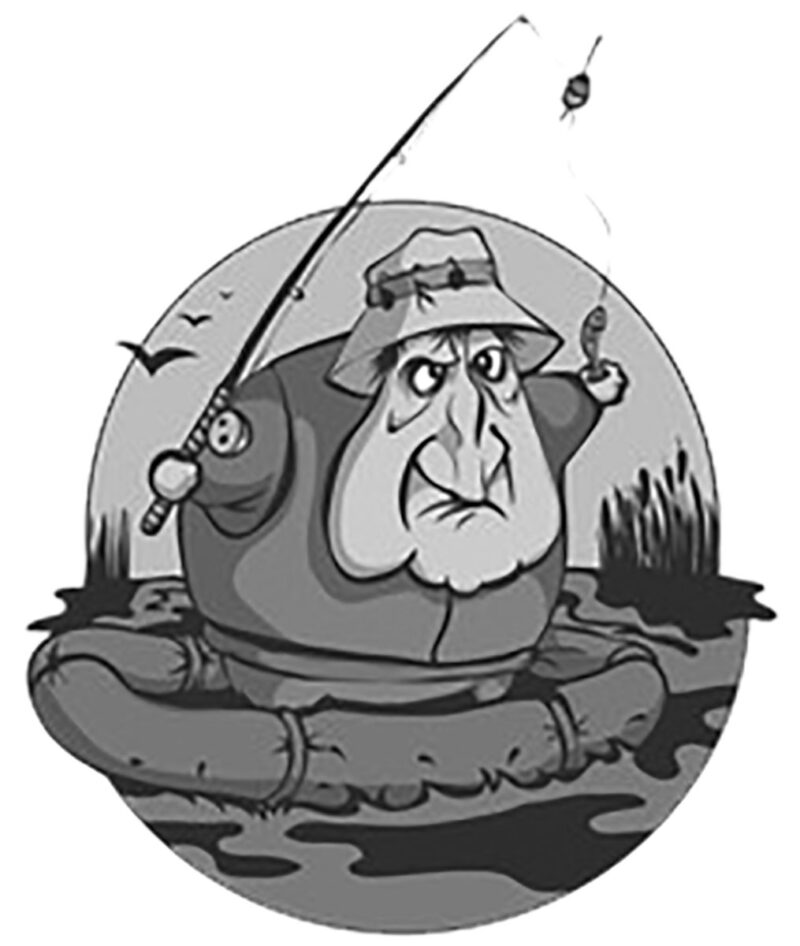 The fishing tackle company to which Earl sold his invention soon featured it in all of the 56 different catalogues they distributed each year. As the patent holder, Earl became so rich that he was forced to spend each day investing his money and had no time to fish. Before he could rectify his obscene wealth by divorcing his young and incredibly beautiful fourth wife, Earl was found dead in his palatial new home, smothered under a huge pile of mail-order catalogues addressed to a mysterious co-conspirator identified in police records only as “occupant.”
The fishing tackle company to which Earl sold his invention soon featured it in all of the 56 different catalogues they distributed each year. As the patent holder, Earl became so rich that he was forced to spend each day investing his money and had no time to fish. Before he could rectify his obscene wealth by divorcing his young and incredibly beautiful fourth wife, Earl was found dead in his palatial new home, smothered under a huge pile of mail-order catalogues addressed to a mysterious co-conspirator identified in police records only as “occupant.”
It’s an interesting story and the fact that I made it up with absolutely no evidence to support it does not mean that it couldn’t have happened. I offer it here as an example for beginners who are unsure what to expect when first they join the fishing fraternity. Expect a lot of fish tales, my friends, and watch out for those catalogues.
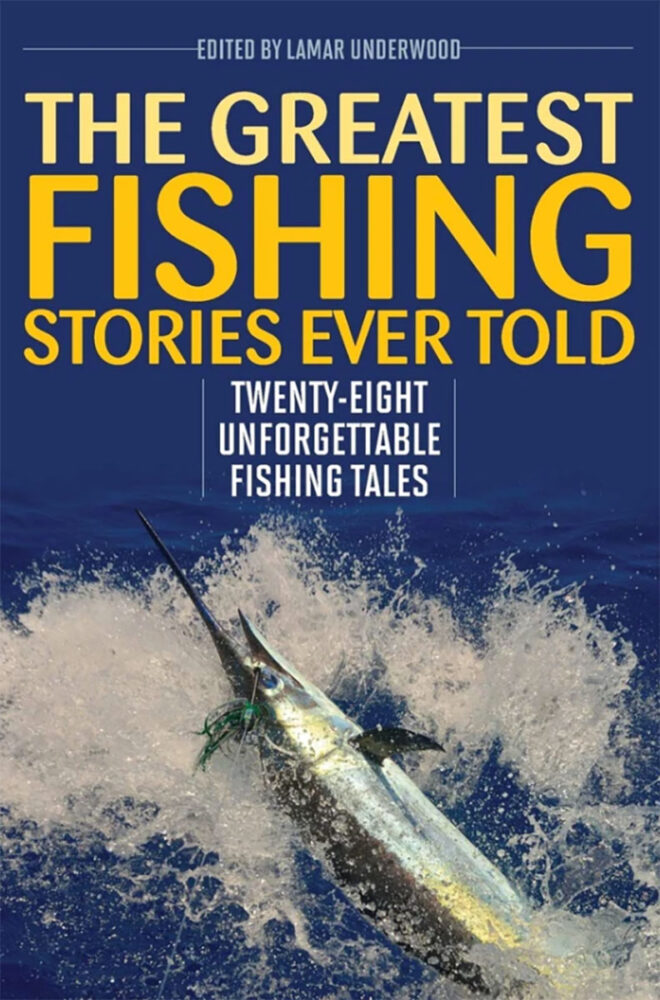 The Greatest Fishing Stories Ever Told is sure to ignite recollections of your own angling experiences as well as send your imagination adrift. In this compilation of tales you will read about two kinds of places, the ones you have been to before and love to remember, and the places you have only dreamed of going, and would love to visit. Whether you prefer to fish rivers, estuaries, or beaches, this book will take you to all kinds of water, where you’ll experience catching every kind of fish. Buy Now
The Greatest Fishing Stories Ever Told is sure to ignite recollections of your own angling experiences as well as send your imagination adrift. In this compilation of tales you will read about two kinds of places, the ones you have been to before and love to remember, and the places you have only dreamed of going, and would love to visit. Whether you prefer to fish rivers, estuaries, or beaches, this book will take you to all kinds of water, where you’ll experience catching every kind of fish. Buy Now

